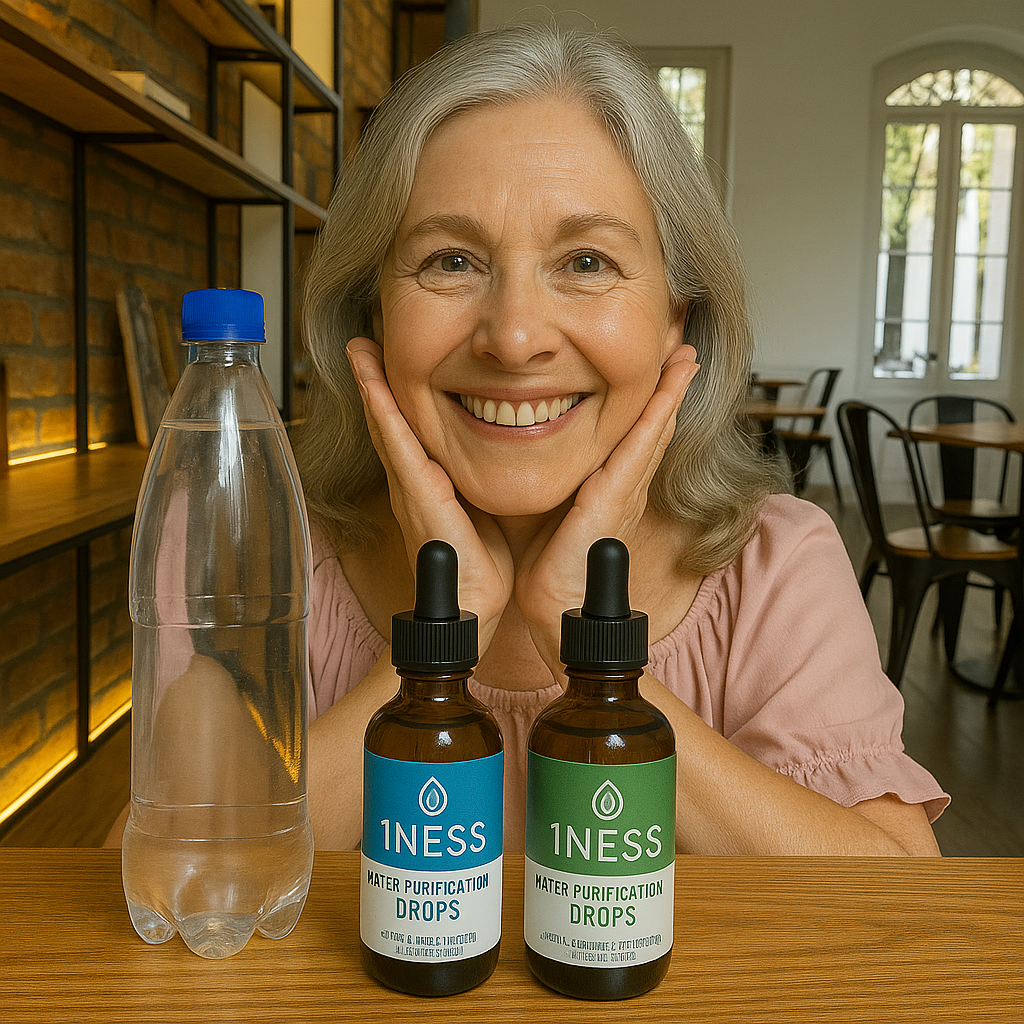What Is the Difference Between Chlorine and Chlorine Dioxide?
Chlorine and chlorine dioxide are both widely used disinfectants—but they are not the same. In fact, their chemistry, applications, and safety profiles differ more than many people realize. If you’ve ever wondered about the difference between chlorine and chlorine dioxide, this guide will break it down simply and clearly.
Whether you’re concerned about safe drinking water, want to purify water outdoors, or need a non-toxic vegetable rinse, understanding the differences between these two chemicals is essential.
What’s the Core Difference?
Let’s start with the basics.
-
Chlorine (Cl₂) is a yellow-green gas and a single chemical element. It’s commonly found in swimming pools, bleach, and industrial cleaners.
-
Chlorine Dioxide (ClO₂) is a compound made of chlorine and oxygen. It behaves very differently than chlorine and is far more selective in its disinfecting action. It's especially valued because it produces fewer harmful byproducts and is EPA-recommended for disinfecting drinking water.
So, the real difference between chlorine and chlorine dioxide is not just chemical, it's functional.
Simple Analogy: Lego Block vs. Lego Set
Imagine chlorine as one Lego block, basic and powerful. It gets the job done but isn’t very sophisticated.
Chlorine dioxide is more like a Lego set, a combination of parts that work smarter together. It’s more versatile, efficient, and targeted, especially when you're dealing with complex tasks like purifying water that might contain parasites or organic matter.
How Does Chlorine Dioxide Work?
Chlorine dioxide works through oxidation. When you activate the 1NESS Chlorine Dioxide Kit, the two parts chemically react to form chlorine dioxide gas, which dissolves into water.
This gas actively seeks out and destroys bacteria, viruses, and protozoa, without reacting to non-harmful substances. That selectivity is another key difference between chlorine and chlorine dioxide—chlorine is reactive with almost everything, which is why it often creates harmful byproducts like trihalomethanes (THMs).
Everyday Uses for Chlorine Dioxide
Chlorine dioxide isn’t just for industrial use. It’s become a popular and reliable tool for:
-
Outdoor Water Purification – Ideal for campers, hikers, and emergency kits
-
Vegetable Rinse – Safely removes dirt and bacteria from produce
-
Coffee Maker Cleaner – Eliminates buildup and microbial contamination
-
Pet Area Freshener – Neutralizes odors and sanitizes safely
-
Kitchen Disinfection – A non-toxic way to clean surfaces
These diverse applications showcase how the difference between chlorine and chlorine dioxide makes CD the better all-around disinfectant for modern needs.
How to Use the 1NESS Chlorine Dioxide Kit
Using chlorine dioxide is simple when you follow a few key steps:
-
Measure Drops
Use 3–5 drops of Part A and Part B per gallon of water. -
Activate the Solution
Mix both parts in a small glass or plastic container and wait 30 seconds. -
Purify the Water
Add the activated solution to water and wait 30 minutes before drinking. -
Store Properly
Keep the kit in a cool, dark place to extend its shelf life.
With this method, you get fast, effective purification that highlights the difference between chlorine and chlorine dioxide—no strong taste, no harmful leftovers, and no need for boiling or filters.
Why Outdoor Enthusiasts Love It
-
Lightweight and portable
-
No heat or power required
-
Works in 30 minutes
-
Doesn’t clog like filters
-
Leaves no chemical taste
“Simple, effective, and a lifesaver on long hikes.” – Verified Customer
For adventurers and preppers alike, the difference between chlorine and chlorine dioxide is clear: chlorine dioxide offers safer, faster, and more pleasant water treatment.
Chlorine Dioxide vs. Other Purification Methods
|
Method |
Pros |
Cons |
|
Chlorine |
Widely available |
Can create harmful byproducts |
|
Iodine Tablets |
Portable and light |
Bad taste, not effective vs. all germs |
|
Water Filters |
Removes particles and bugs |
Bulky, requires cleaning |
|
UV Light |
No chemicals |
Needs power, won’t work in murky water |
|
CD Kit |
Kills bacteria, viruses, protozoa |
Must mix and wait 30 minutes |
This chart shows how the difference between chlorine and chlorine dioxide makes CD a standout for safety and convenience.
The difference between chlorine and chlorine dioxide is more than chemistry—it’s a difference in safety, selectivity, and smart disinfection. Whether you're prepping for emergencies, heading into the wild, or just want cleaner veggies at home, chlorine dioxide is a smart, modern upgrade from traditional chlorine.
What Our Customers Are Saying
Our Chlorine Dioxide Water Purification Kit is loved for its simplicity, portability, and reliability. Whether used for daily water treatment or emergency preparedness, customers appreciate how easy it is to use and how effective it is—especially when clean water isn’t guaranteed.
Frequently Asked Questions
Q: Is chlorine dioxide safe to drink?
A: Yes, when used as directed. It’s EPA-approved and safe when properly activated and diluted.
Q: What’s better for camping: chlorine or chlorine dioxide?
A: Chlorine dioxide. It kills more pathogens and leaves no strong chemical taste.
Q: Can I use chlorine dioxide every day?
A: Yes, many use it daily in small, directed doses for safe water.
Explore More
-
Chlorine Dioxide Water Purification Kit: A simple, effective solution for safe water purification.
-
Learn More About Our Ingredients: See the high-quality, USA-sourced components in our kits.
-
Sign Up for Exclusive Offers: Join us for special deals and updates.
Disclaimer
This guide is for informational purposes only and is not a substitute for professional medical or environmental remediation advice. Always consult a healthcare professional for medical issues and a certified specialist for environmental concerns. Follow all safety guidelines carefully when using chlorine dioxide products.
For personalized guidance, text or call us at 818-213-2927. (Calls are recorded for training and quality assurance purposes.)

